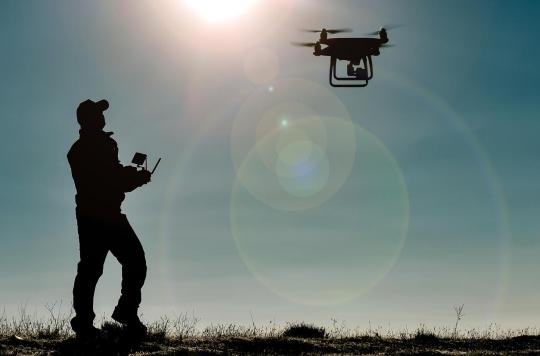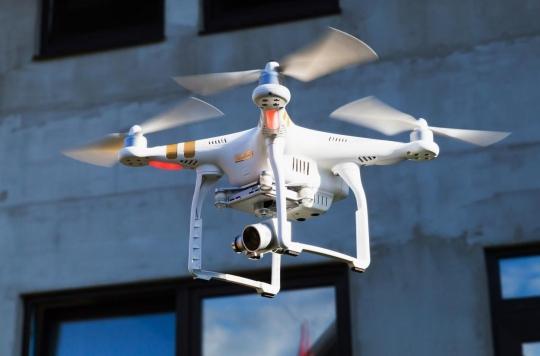A drone containing blood samples traveled 260 km in three hours of flight, setting a new record.

Drones could become a tool of choice to limit the isolation of populations in medical deserts. They are theoretically ideal for the rapid delivery of drugs or the transport of biological fluids, for example.
Researchers from Johns Hopkins University in Baltimore and the University of Arizona in Tucson have taken this idea at face value. They decided to test a drone delivery in a desert, but not only medical. They flew over the Arizona desert, breaking a distance record: 260 km.
Blood samples on board
For this test flight, they had taken blood samples from the University of Arizona on board. Their objective: to show that drones are as safe as other means of land transport for the preservation of the properties of samples. They thus intended to validate the effectiveness of a refrigerated container designed by Johns-Hopkins University to be embarked on a drone.
Each blood sample was duplicated. All the pairs were transported together by car to a take-off runway, then separated: one tube was loaded into the drone for the flight, while the other waited in the car.
In the air and on the ground
The flight lasted three hours. Once complete, the samples were reassembled and transported to the Mayo Clinic in Phoenix, where 17 standard laboratory tests were performed.
For most of the tests, the results were identical: blood count, platelets, sodium levels… A slight difference was nevertheless observed in the glucose and potassium levels. Nothing abnormal: it is also observed during land transport.
“These differences are caused by chemical degradation, due to a slightly higher storage temperature for samples left on the ground,” explain the researchers. The average temperature of the samples on the ground was indeed 27.3°C, against 24.8°C for those which had flown away.
Open up isolated populations
The drone, well equipped, can therefore be an interesting resource for isolated areas. Elderly people living alone in the remote countryside of Périgord could, for example, receive their medication directly at home. A small mountain dispensary could also send blood samples in a few minutes to an analysis laboratory in the valley, and obtain results urgently.
“Drones can operate where there are no roads, and bypass conditions that hinder road transport, such as traffic jams, or other logistical annoyances that impede diagnosis and rapid and efficient management. patients, says Dr. Timothy Amukele, pathologist at Johns-Hopkins University, convinced of the usefulness of drones in his profession, and one of the authors of the study. We believe that in many cases, drone transport will be the fastest, safest and most efficient option for delivering biological samples to analytical laboratories, whether in rural or urban areas. »
Next step: after the desert, cross the oceans to reach the islands? It will also be necessary, once all the tests have been validated, to establish specific regulations.
.















